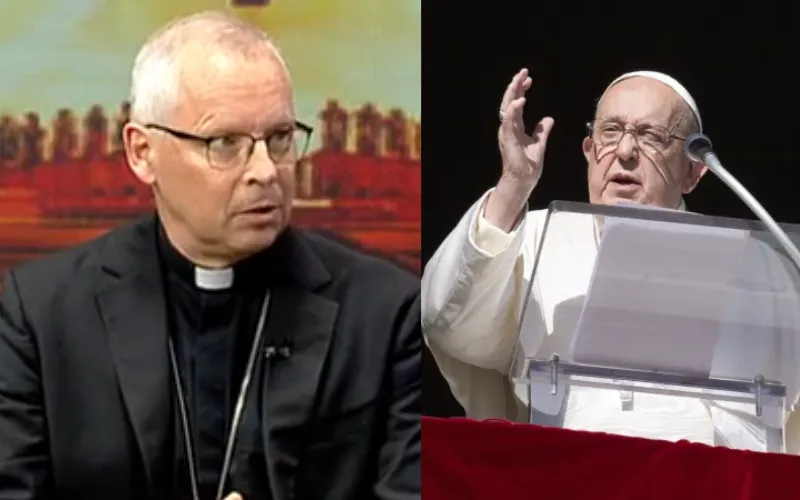“Because he is also a diplomat, and being an ambassador that gives him the opportunity to meet other diplomats here in the Kingdom, basically courtesy calls; a number of diplomats dealing with the Kingdom reside here or in South Africa and in Mozambique,” the Local Ordinary of Manzini Diocese said during the October 13 interview.
He added, “There are also a number of projects that are being done in this Diocese through the services of the Nunciature…so he always likes to see first-hand what we have reported in writing and photographs.”
With funding from the Papal Foundation, the Catholic Church in Eswatini has contributed towards the building of various projects including schools, a pastoral center and health facilities such as the Good Shepherd Hospital, where the Catholic Church has made a financial contribution towards the extension of the Outpatient Department (OPD).
“We are now extending the OPD of the hospital. It's a hospital born decades ago, which developed in services but not in structures. So, we came with that idea and the Papal foundation supported it. The government was very excited and decided to make it even bigger through their own financial commitment,” said the Argentine-born member of the Consolata Missionaries (IMC) who has been at the helm of Manzini Diocese since his installation in January 2014.
The Apostolic Nuncio to Eswatini “had the opportunity to see the progress of that project which should be ready by the end of this year… he also visited the extension of the pastoral center, which was miraculously built during the COVID-19 lockdowns,” added Bishop Ponce de León.
The 61-year-old Bishop who started his Episcopal Ministry in April 2009 further said, “We are also planning to build a kind of retirement home that will be close to our clinics and Hospice for frail Priests. Thanks to the Papal foundation, again we have been able to build a new Priest house in Mankayane for the Holy Rosary Parish, and several other projects.”
As the Kingdom of eSwatini waits for a National Dialogue following pro-democracy protests and civil unrest in June 2021, Bishop Ponce de León said, “The role of the Church is to continue to accompany this journey. The Diocese made a commitment to help those victims of the unrest.”
“At the same time, the justice and Peace Office of the diocese has started peace clubs in the high schools to help young people with a space to talk, but also to grow in the conviction that nonviolence is always the answer to any crisis,” said Bishop Ponce de León during the October 13 interview.
Sheila Pires is a veteran radio and television Mozambican journalist based in South Africa. She studied communications at the University of South Africa. She is passionate about writing on the works of the Church through Catholic journalism.








